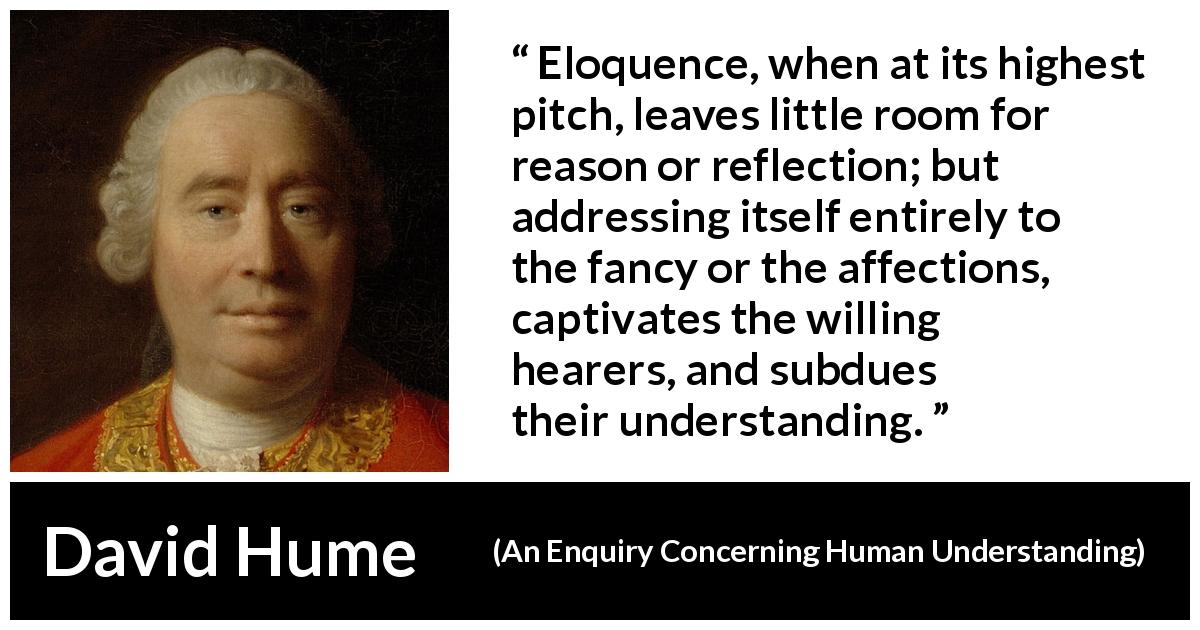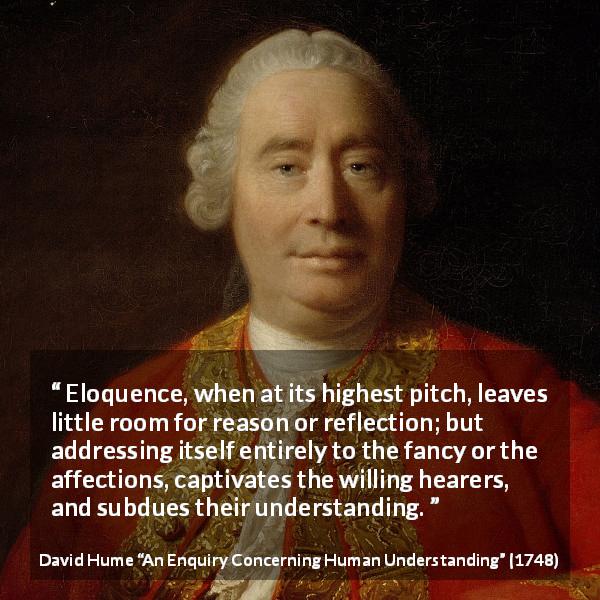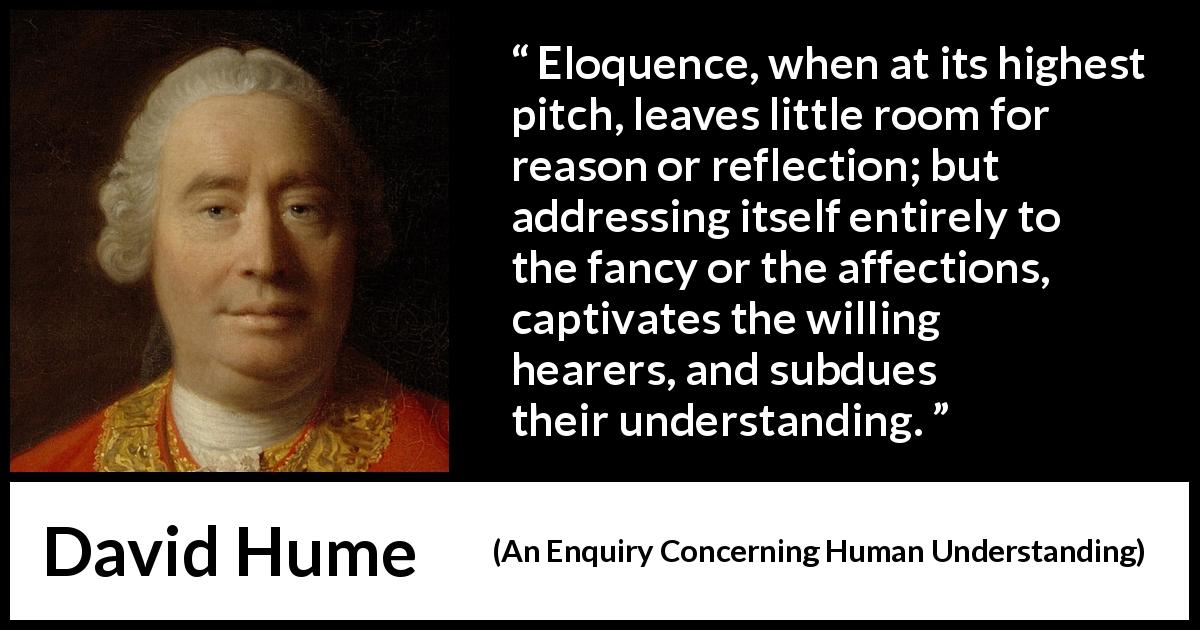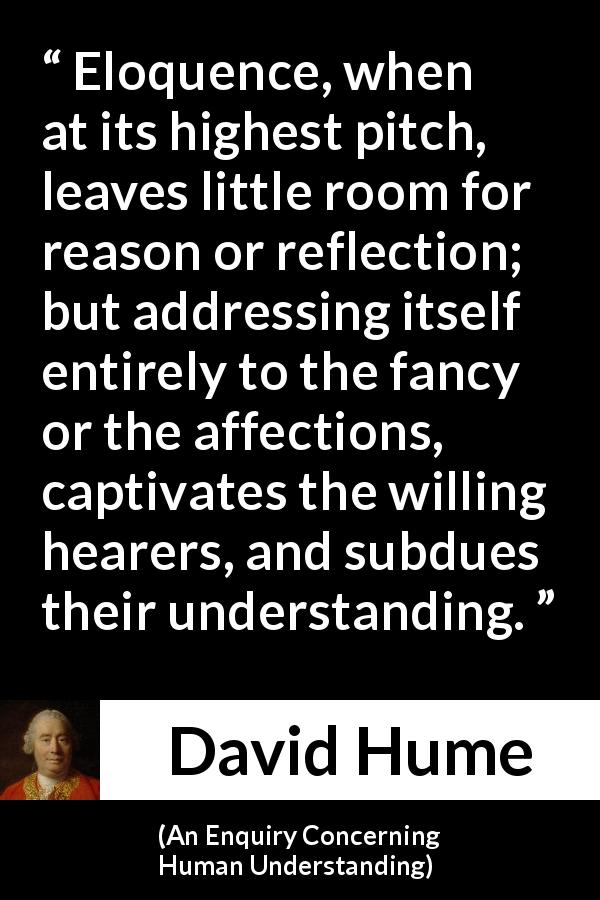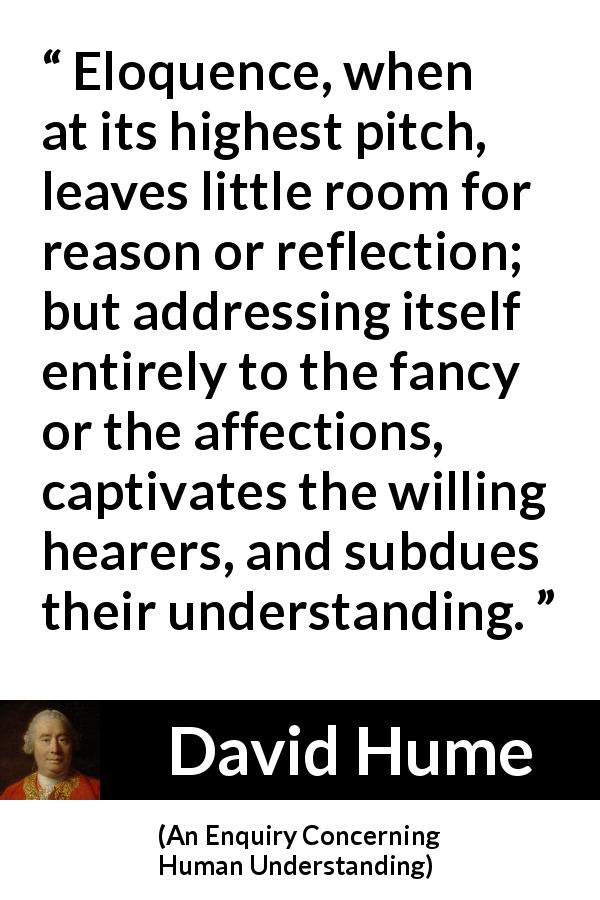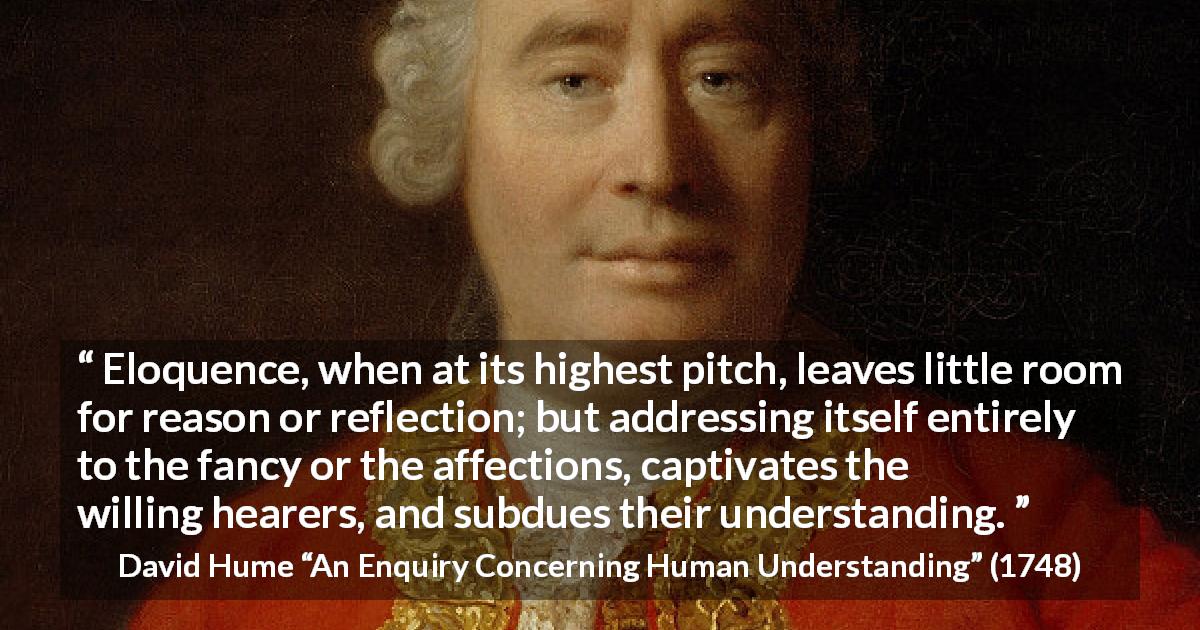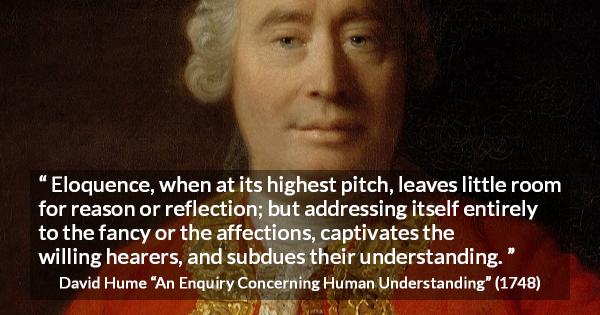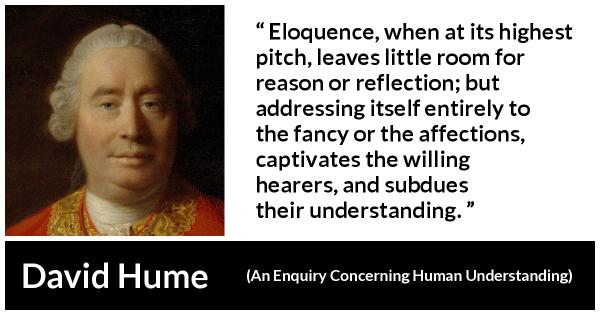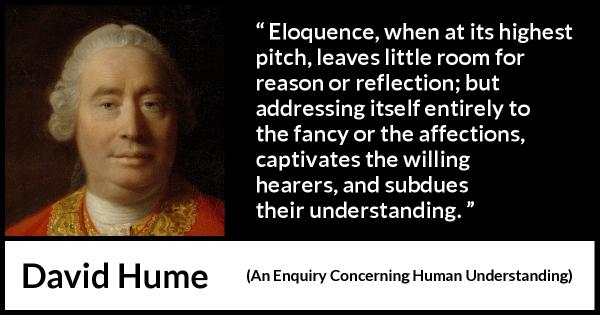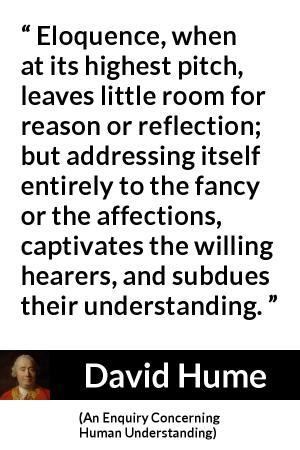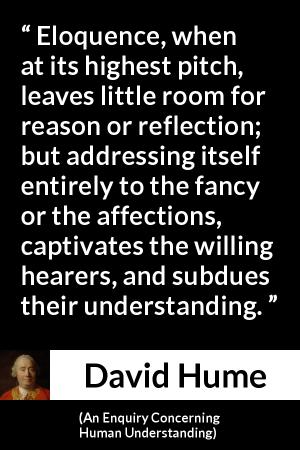“ Eloquence, when at its highest pitch, leaves little room for reason or reflection; but addressing itself entirely to the fancy or the affections, captivates the willing hearers, and subdues their understanding. ”
David Hume, An Enquiry Concerning Human Understanding (1748). copy citation
| Author | David Hume |
|---|---|
| Source | An Enquiry Concerning Human Understanding |
| Topic | reason understanding affection eloquence |
| Date | 1748 |
| Language | English |
| Reference | |
| Note | |
| Weblink | http://www.gutenberg.org/files/9662/9662-h/9662-h.htm |
Context
“His auditors may not have, and commonly have not, sufficient judgement to canvass his evidence: what judgement they have, they renounce by principle, in these sublime and mysterious subjects: or if they were ever so willing to employ it, passion and a heated imagination disturb the regularity of its operations. Their credulity increases his impudence: and his impudence overpowers their credulity.
Eloquence, when at its highest pitch, leaves little room for reason or reflection; but addressing itself entirely to the fancy or the affections, captivates the willing hearers, and subdues their understanding. Happily, this pitch it seldom attains. But what a Tully or a Demosthenes could scarcely effect over a Roman or Athenian audience, every Capuchin, every itinerant or stationary teacher can perform over the generality of mankind, and in a higher degree, by touching such gross and vulgar passions.” source
Eloquence, when at its highest pitch, leaves little room for reason or reflection; but addressing itself entirely to the fancy or the affections, captivates the willing hearers, and subdues their understanding. Happily, this pitch it seldom attains. But what a Tully or a Demosthenes could scarcely effect over a Roman or Athenian audience, every Capuchin, every itinerant or stationary teacher can perform over the generality of mankind, and in a higher degree, by touching such gross and vulgar passions.” source
